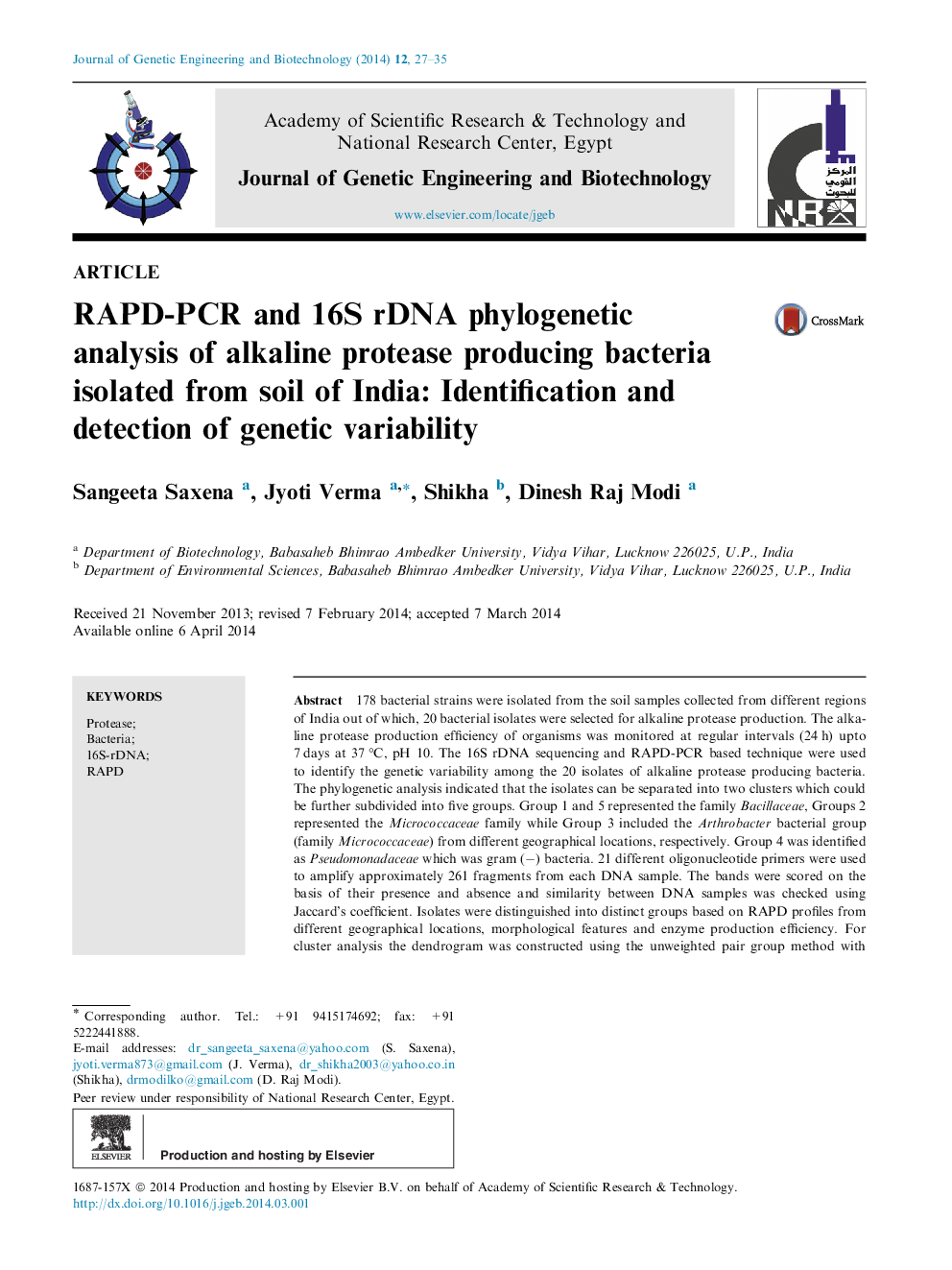| Article ID | Journal | Published Year | Pages | File Type |
|---|---|---|---|---|
| 2087881 | Journal of Genetic Engineering and Biotechnology | 2014 | 9 Pages |
178 bacterial strains were isolated from the soil samples collected from different regions of India out of which, 20 bacterial isolates were selected for alkaline protease production. The alkaline protease production efficiency of organisms was monitored at regular intervals (24 h) upto 7 days at 37 °C, pH 10. The 16S rDNA sequencing and RAPD-PCR based technique were used to identify the genetic variability among the 20 isolates of alkaline protease producing bacteria. The phylogenetic analysis indicated that the isolates can be separated into two clusters which could be further subdivided into five groups. Group 1 and 5 represented the family Bacillaceae, Groups 2 represented the Micrococcaceae family while Group 3 included the Arthrobacter bacterial group (family Micrococcaceae) from different geographical locations, respectively. Group 4 was identified as Pseudomonadaceae which was gram (−) bacteria. 21 different oligonucleotide primers were used to amplify approximately 261 fragments from each DNA sample. The bands were scored on the basis of their presence and absence and similarity between DNA samples was checked using Jaccard’s coefficient. Isolates were distinguished into distinct groups based on RAPD profiles from different geographical locations, morphological features and enzyme production efficiency. For cluster analysis the dendrogram was constructed using the unweighted pair group method with arithmetic averages (UPGMA). The results indicated that 16S rDNA and RAPD-PCR are suitable methods for rapid identification and differentiation of alkaline protease producing bacteria.
